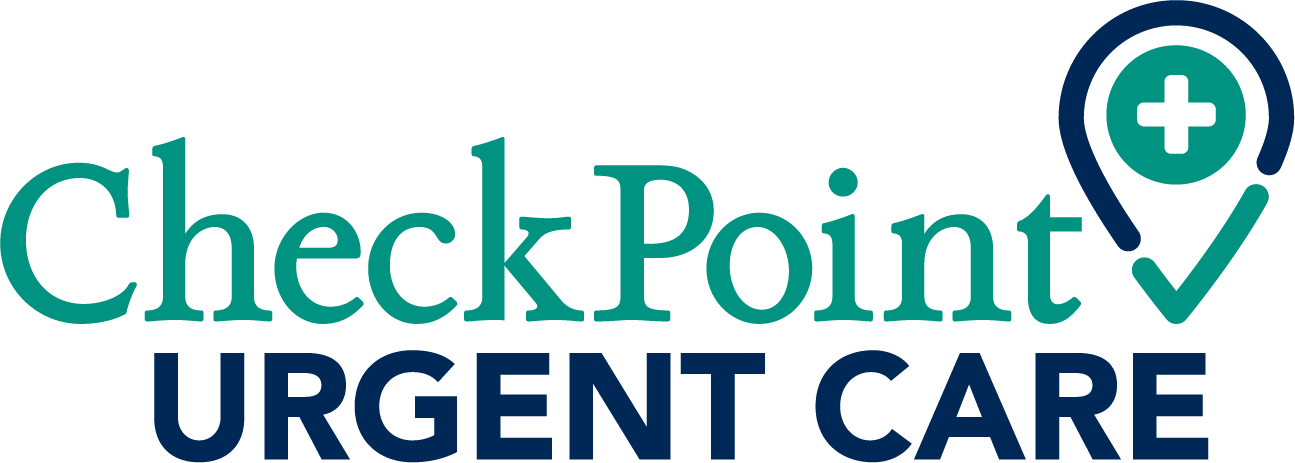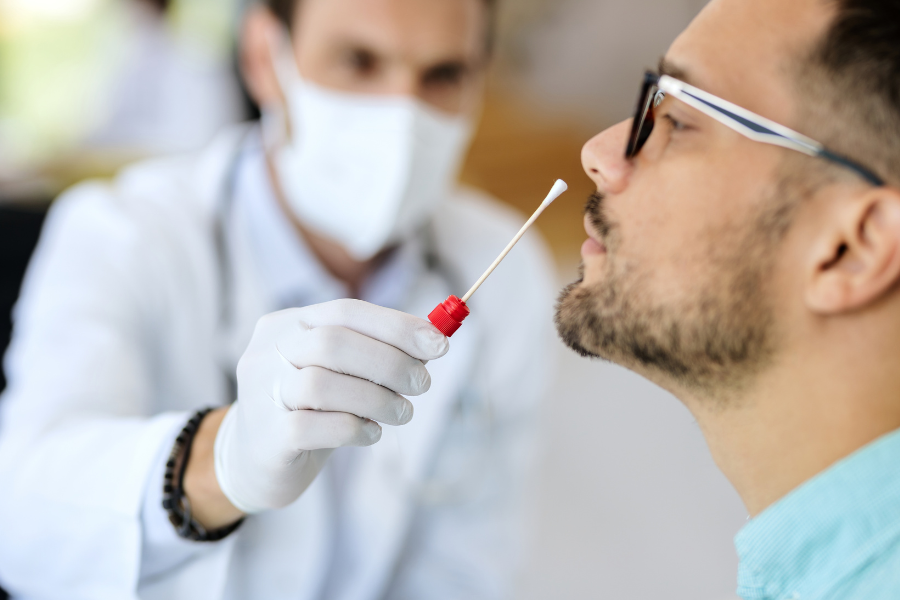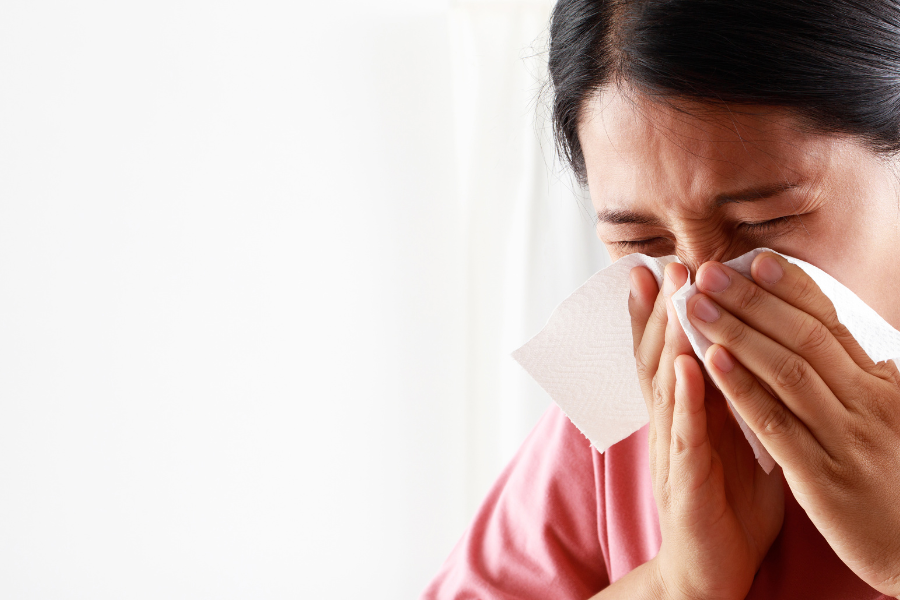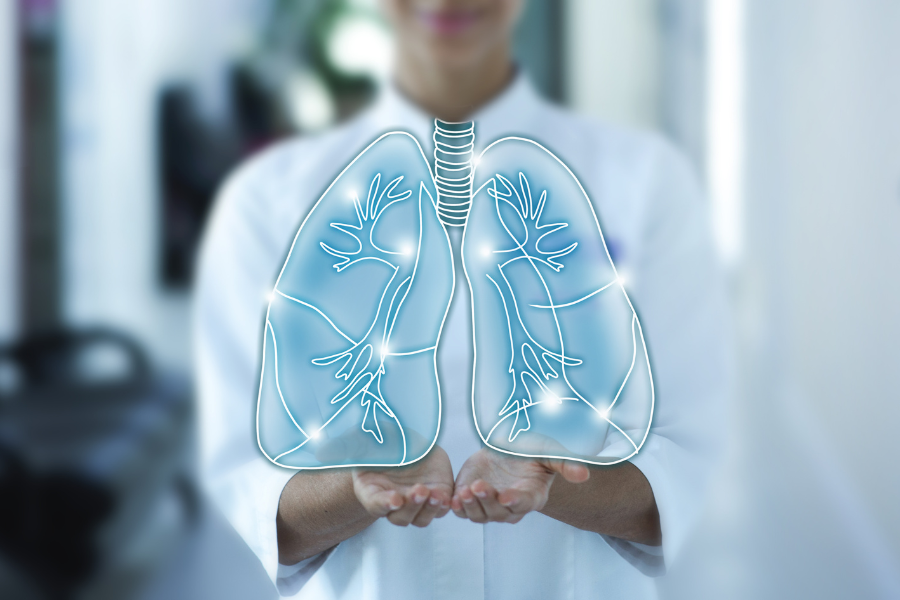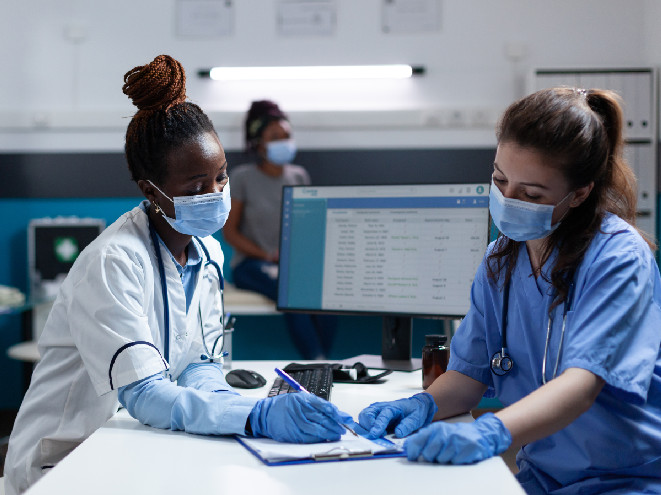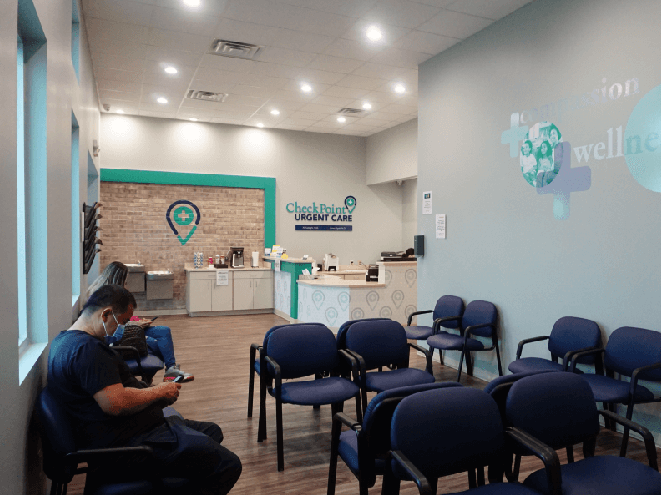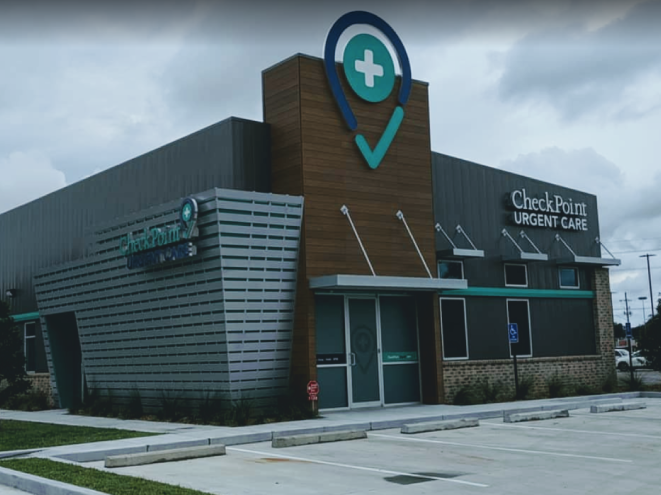If you find yourself sick, you may ask if it’s COVID-19, a common cold, allergies, or another illness. To learn how to keep yourself healthy and what to do if you become infected with COVID-19, keep reading to stay informed with Checkpoint Urgent Care.
2023 COVID-19 Update
While COVID-19 is not going away, we are much more equipped to fight the virus in 2023 than we were when the virus was first introduced in 2019. Vaccinations, treatments, and research have come a long way in the past 3- 4 years.
COVID-19 Symptoms
People infected with COVID-19 often have a wide array of symptoms — ranging from mild to severe. Symptoms may appear as soon as two days after exposure and up to 14 days after exposure. Possible symptoms include:
- Fever
- Cough
- Shortness of breath or difficulty breathing
- Fatigue
- Muscle or body aches
- Loss of taste or smell
- Headaches
- Sore throat
- Nausea and diarrhea
- Congestion or runny nose
These are not all possible symptoms. With each new variant of the virus comes the potential for different symptoms. Your vaccination status may also affect your symptoms.
How Long Are You Contagious With COVID-19
You can become sick with COVID as soon as two days after exposure and up to 14 days after exposure. Most people are contagious with COVID during the first five days of their illness. At the same time, most infected people may not have symptoms during the first 2-3 days of their illness. This is what makes outbreaks so challenging to contain. On average, people are contagious for 5-10 days, but some people are contagious for longer. Fully vaccinated people are more likely to stop being contagious sooner than unvaccinated people.
Who Can Get Sick With COVID-19
We are all at risk of infection from the COVID-19 virus. Vaccination status, past infection history, and timely access to testing and treatment can protect you from getting seriously ill with COVID. However, some people are more susceptible to serious illness. People who are older, immunocompromised, have specific disabilities or have underlying health conditions are more likely to get seriously ill.
Is COVID-19 Seasonal?
While trends point to COVID becoming a seasonal illness, we’re not quite there yet. Certain factors like variant evolution, population immunity, and behavioral changes have made seasonal COVID less apparent. Most experts agree that the disease may get into a predictable pattern (like the flu) once the population has more immunity and we return to our pre-pandemic activities, but this can take some time.
COVID-19 Vaccinations and Boosters
COVID-19 vaccinations are available in the United States and effectively prevent serious illness, hospitalization, and death. As with any vaccine-preventable illness, you are best protected when you’re up-to-date on the recommended vaccinations. You may have questions on recent COVID-19 vaccinations, boosters, eligibility, and more.
As of October 12, 2022, everyone age five and older is eligible for an updated (bivalent) booster. There are different guidelines for each age group, so be sure to check out the CDC recommendations for:
- Children and teens six months to 17 years
- Adults 18 years and older
How Is COVID-19 Treated
Most people infected with COVID-19 can treat it at home with over-the-counter medications, rest, and lots of fluids. However, if you find yourself seriously ill with COVID, there are treatments available that can reduce your chances of hospitalization or death. The key is to catch it early. Contact your healthcare provider or visit us at Checkpoint Urgent Care to see if you are eligible.
The FDA has authorized a few different treatments for serious COVID illness:
- Monoclonal antibodies — help the immune system recognize and respond more efficiently to the virus
- Antiviral treatments — medications that target specific parts of the virus to stop it from multiplying within the body
When To Visit Checkpoint Urgent Care
It’s essential to verify a positive COVID test as soon as possible. While we don’t offer vaccines, we do offer COVID testing. By catching infections early, you may be eligible to begin specific treatments that could prevent severe illness or hospitalization if you are at risk. Checkpoint Urgent Care is open seven days a week to help you feel better sooner.
However, please seek immediate emergency attention if you have the following:
- Trouble breathing
- Persistent chest pain
- New confusion
- Inability to wake or stay awake
- Pale, blue, or gray-colored skin or lips
